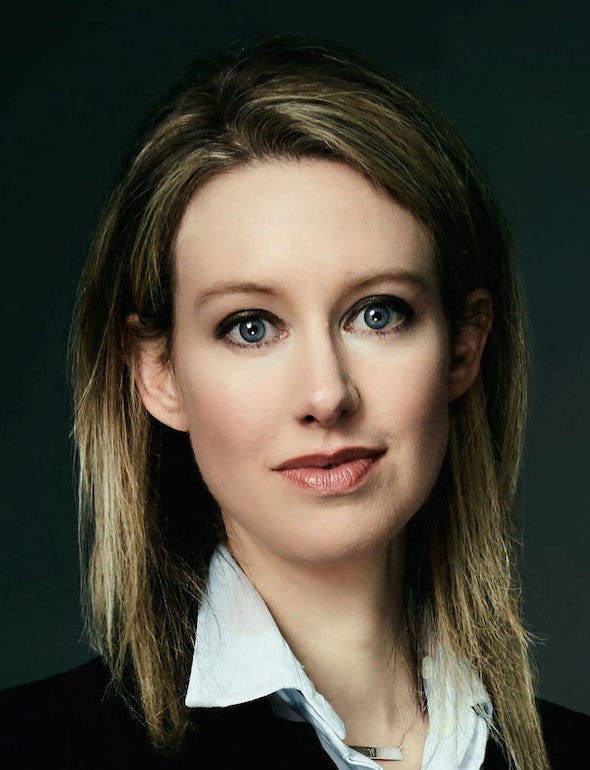🔅 Bill Gates pledges $7 billion
Today’s Issue: Ford says South Africa needs to step up, and the 'next Steve Jobs' is sentenced to 11 years ... ☕
Markets — Year-to-Date
🔺 Nigerian SE: 44,492.73 (+4.16%)
🔻 Johannesburg SE: 72,576.86 (-1.54%)
🔻 Ghana SE: 2,462.80 (-11.71%)
🔻 Nairobi SE: 129.02 (-22.49%)
🔻 US S&P 500: 3,965.34 (-17.33%)
🔻 Shanghai Composite: 3,097.24 (-14.73%)
*Data accurate as of close of markets across the continent
Nigeria: Africa's largest economy is expected to devalue its currency after elections in February by the steepest margin in six years, according to a survey of investors and analysts. Most analysts expect the currency to be devalued by 20% or more, which would be the most significant adjustment since 2015. The move would bring the currency in line with market perceptions and might help boost exports.
CLIMATE CHANGE
Bill Gates pledges $7 billion for Africa
What is Happening?
Bill Gates announced that his foundation would spend $7 billion in Africa over the next four years. The money will go towards projects tackling hunger, disease, poverty and gender inequality. Nigeria, Africa's most populous country, will take the most significant share.
Gates made the announcement during a visit to Kenya, where he warned that aid and funding for Africa were being diverted towards Ukraine. "If you take all aid (into Africa) including all climate aid - we'll have a few years where it’ll probably go down."
Why it Matters:
Much of East Africa is suffering its worst drought in four decades. Drought, compounded by conflict and the COVID-19 pandemic, has pushed more than 10 million people in the region "to the very brink of a hunger crisis", the U.S.-based Christian relief group World Vision said this week.
The United Nations expects famine to be declared in parts of Somalia this year.
Following a meeting with Kenyan President William Ruto, Gates said on Wednesday that the Foundation would establish a regional office in Nairobi.
In 2021, the foundation gave charitable support of $6.7 billion and1 last week pledged $1.4 billion to help the world's smallholder farmers cope with climate change.
ACROSS THE CONTINENT
Other Headlines

🇿🇦 The Africa head of Ford Motor Company says South Africa is in danger of losing its place in the global automotive industry if the government doesn't get its act together on electric vehicles. Neale Hill told Reuters that the South African government needs to provide policy certainty on E.V.s within the next six months or risk losing thousands of jobs and billions in revenue. The local automotive industry accounts for 5% of the GDP and more than 100,000 jobs, with three-quarters of cars produced being exported, mainly to Europe. But with Britain planning to ban sales of new petrol and diesel cars from 2030 and the European Union in 2035, the South African industry is in danger of being left behind. Hill says companies like Ford are forced to make decisions about their E.V. plans without input from the South African government. He warned that the government's "delays and lethargy" on the issue could cost the country its place in the global automotive industry.
🇫🇷 More than half of the 44 minors on board the Ocean Viking refugee rescue ship have fled the French social services who were taking care of them, authorities said on Thursday. The boat, which was carrying more than 200 migrants rescued in the Mediterranean, docked at the port of Toulon last week after Italy refused to take them in. The move sparked a dispute between the two countries and condemnation by far-right French parties, which blamed the government for being soft on immigration. On Thursday, the Var prefecture said that 26 of the 44 minors on the ship had fled the Toulon hotel where they had been housed. It said in a statement that the children who left were mainly Eritreans who preferred to join relatives in other European countries, including the Netherlands, Luxembourg, Switzerland and Germany.
AROUND THE WORLD
Elizabeth Holmes, the 'next Steve Jobs', sentenced for fraud
What’s This About?
Disgraced Theranos founder Elizabeth Holmes has been sentenced to 11 years for defrauding investors in her now-defunct blood testing start-up.
In January, the 38-year-old Silicon Valley star was convicted of four counts of fraud after falsely claiming that the company’s technology could diagnose disease with just a few drops of blood.
Once hailed as the "next Steve Jobs", she was once said to be the world's youngest self-made billionaire. She launched Theranos after dropping out of Stanford University at age 19, and the company’s value rose after it claimed its technology could revolutionise disease diagnosis. But the technology did not work, and Theranos was dissolved in 2018 amid a wave of lawsuits.
The judge determined that Holmes had caused $121 million in losses to investors, and the amount she will be required to repay will be determined at a later court hearing.
Why it Matters:
Holmes' punishment is a warning for Silicon Valley executives that there are real consequences for misleading investors. This isn't a slap on the wrist.
It's also a reminder that Silicon Valley is where fortunes can be made and squandered.
However, Holmes' case is different because Theranos' unwinding led to fraud charges that stuck. It is notoriously difficult to get successful prosecutions in cases of white-collar fraud in the U.S.
So while Holmes' sentence may not deter other executives from making false claims about their companies, it does send a message that there can be real consequences for doing so.
FOOD FOR THOUGHT
Proverb of the Day
“Anyone who urinates in a stream should be warned because any of his relatives may drink from the water.”
— Kenyan Proverb.






